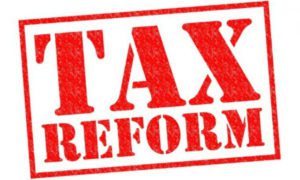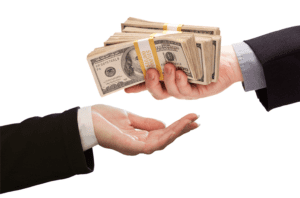
The Cabinet of Ministers of Ukraine plans to conduct the “deep” tax reform in spring, which will take effect in 2021, Ukrainian Prime Minister Oleksiy Honcharuk has said. “Our tax system is designed so that a good-faith taxpayer loses. If you honestly pay taxes, you are simply forced to optimize on several markets. This is very wrong. We are planning a deep reform of the tax system in the spring, because you cannot change the tax system in the second half of the year,” he told reporters in Kyiv on Friday.
Tax reform should come into force on January 1, 2021, Honcharuk said.
“And this autumn, our main task is to clean up the administration of taxes. We have Mr. Verlanov for this. He is a very decent person. I really count on him,” the prime minister said.
Asked about potential changes in taxation for individual entrepreneurs, he said: “I believe that the system needs to be fixed, but to start doing this should not be from the ‘small taxpayers’ for sure.”
According to Honcharuk, the main problem of the simplified taxation system is that it is used for “smuggled money laundering.”
“Now it is difficult for me to say how the model that we propose will look like. But we will proceed from the fact that the whole country should use the simplified taxation system. That is, taxation should be so simple that it is not difficult for anyone,” the prime minister said.
National bank of Ukraine’s official rates as of 30/08/19

Source: National Bank of Ukraine

Shakhtar Donetsk Football Club will play in the group stage of the Champions League of 2019-2020 season with the English Manchester City, the Croatian Dinamo Zagreb and the Italian Atalanta.
These are the results of the draw, which took place in Monaco.
The champions of Ukraine played with Man City in the same group in the previous season and received 0:3 home defeat, and 0:6 in an away loss.
Ukrainian midfielder Ruslan Malynovsky plays for Atalanta from this season.
ATALANTA, CHAMPIONS LEAGUE, DINAMO ZAGREB, MANCHESTER CITY, SHAKHTAR DONETSK

Foreign direct investment (FDI) in Ukraine as equity capital as of July 1, 2019, was $33.724 billion, which was 2.6%, or $0.84 billion more than in the beginning of the year, the State Statistics Service of Ukraine said. According to the data, the inflow of FDI for the sixth months of 2019 totalled $1.256 billion, $728.9 million was written off, other changes of the cost of the corporate capital of nonresidents totaled $309 million with exchange rate differences of $520.8 million.
According to previously published data, first quarterly inflow of FDI in Ukraine grew by $45.5 million.
Cyprus was the leader in FDI surplus in the first half of 2019 with $388.8 million, followed by the Netherlands ($295.1 million), Russia – 145.5 million, and Switzerland ($100.3 million).
Meanwhile, FDI from Hungary decreased $250.6 million.
Nonresidents invested $318.5 million in financial and insurance activities, $184.9 million and $176.4 million in extractive and processing industries respectively, $113.8 million in wholesale and retail trade, $122.6 million in transactions with property, $128.4 million in science and technical activities.
Although there was a $270.4 million drop in FDI in the field of administrative and supportive service for the mentioned period.

Commissioning of housing in Ukraine through January-June 2019 increased by 50.6% compared to 2018, to 4.911 million square meters. According to the report, 2.887 million square meters of housing was commissioned in urban areas in the first six months of 2019, and 2.024 million in rural areas. Some 58% of total volume of housing was commissioned in single-family houses, and 42% in houses with two and more apartments.
Over the period, 53,258 apartments were commissioned, including 45,400 in urban areas and 17,900 in rural areas. Average area of apartments was 92.2 square meters.
Some 54.1% of housing was commissioned in Lviv, Ivano-Frankivsk and Odesa regions in the first half of 2019, in particular in Kyiv city – 430,600 square meters.
The decline in the volume of commissioning was seen in Kharkiv region – by 35.7%, to 129,700 square meters.
The largest growth in housing commissioning year-over-year (not taking into account temporary commissioning rules) was seen in Chernivtsi (by 364.6%, to 270,400 square meters), Ternopil (by 273%, to 199,600 square meters) and Ivano-Frankivsk regions (by 272.1%, to 431,600 square meters).